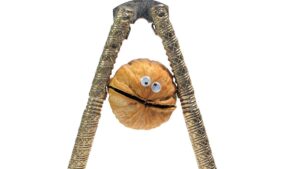Foetal listening device maker HeraMED set to debut on ASX

Pic: Luis Alvarez / DigitalVision via Getty Images
Pregnancy monitoring company HeraMED lists today, but only after the sellers agreed to drop the amount of shares they’re taking.
The owners of the Israeli company which is being listed on the ASX are taking almost 1 million fewer shares, and accepting instead 3.7m 0.002c options.
The stock has been issued at 20c.
The company says the change is for tax reasons.
In spite of the soft market for capital raises right now, HeraMED (ASX:HMD) managed to raise the $6m it was aiming for.
It was aiming for a December 4 listing, but will ring the bell today at 1pm AEDT.
It’s made an at-home foetal heartbeat monitoring device with a smartphone interface.
The company is undertaking the IPO so it can expand the distribution of what it’s dubbed HeraBEAT.
The company soft-launched the first product this year and hopes to have it fully available for sale by the end of 2018, according to the prospectus.
We’ve got an app
The company is working in a well-served market: foetal heartbeat monitors are commonly used by pregnant women, and some also come with apps, although HeraMED points out that the foetal monitoring equipment market is dominated by a few, well-funded global companies.
HereMED says its point of difference is theirs is a medical-grade device and eventually will become ‘as-a-service’ by sending the data to a call centre where it can be monitored.
It has so far sold the devices for $180-200 apiece.
The investment doesn’t come without risk: the HeraMED prospectus points out that they’ve only made a few hundred units so far, and don’t have a scaled manufacturing facility yet, although the company said after it listed that a third party manufacturer has now produced “thousands” of units.
It also underlines the fact that pregnant women, especially those from different cultures, who speak different languages, or are simply unfamiliar with tech like foetal monitoring, will require intensive customer support from the company.
- Subscribe to our daily newsletter
- Bookmark this link for small cap news
- Join our small cap Facebook group
- Follow us on Facebook or Twitter
“High customer support costs may negatively impact the company’s profitability,” it said.
And there is also the fact that the underlying technology has been largely funded by loans from the government’s Israel Innovation Authority (IIA).
Any tech they fund can’t be exported out of Israel without IIA approval, and the organisation may still impose a royalty cap of six times (600 per cent) on the principal loan amount. It also has to approve any move to manufacture the funded technology outside of Israel.
The company has clarified to Stockhead that any decision to impose that royalty cap would come only if they sell technology developed with IIA money to a foreign entity.
Running the numbers
Given the company is still in the process of launching its device, it has only $US27,000 total and that was in the the 2018 fiscal year.
It has signed one distribution agreement so far, with TEVA for Israel.
Losses have been coming down over the last three years however, as development costs have dropped and the company has cut corporate costs.
The 2018 loss was $US599,000, but it expects to have just over $5m in the bank once the IPO is done.
The company was carrying $1.7m in current debts as at the end of June.
UNLOCK INSIGHTS
Discover the untold stories of emerging ASX stocks.
Daily news and expert analysis, it's free to subscribe.
By proceeding, you confirm you understand that we handle personal information in accordance with our Privacy Policy.








